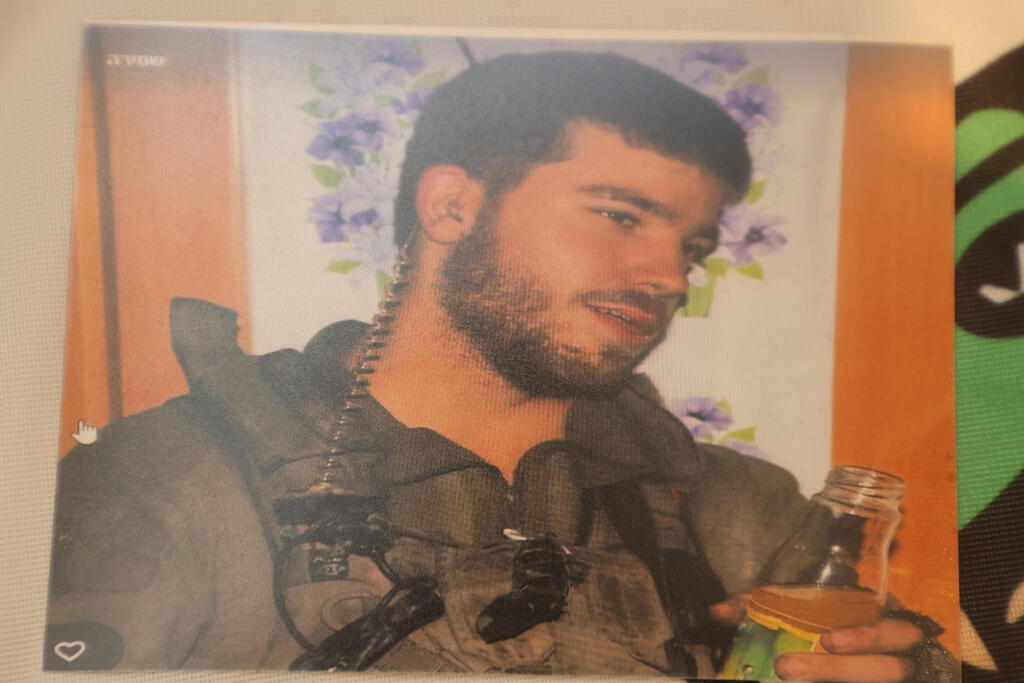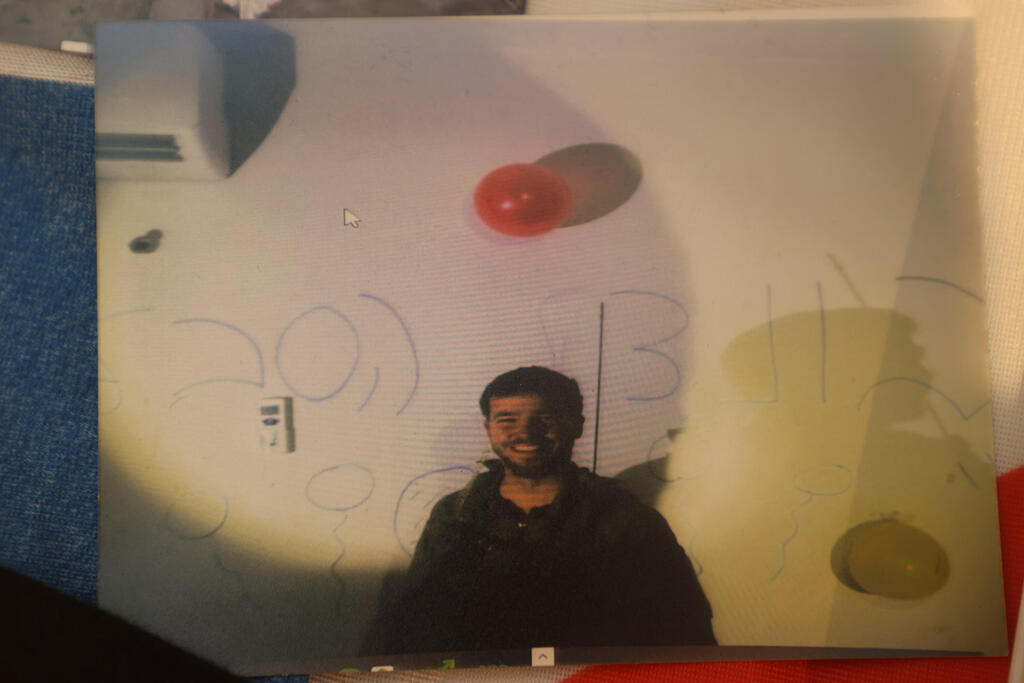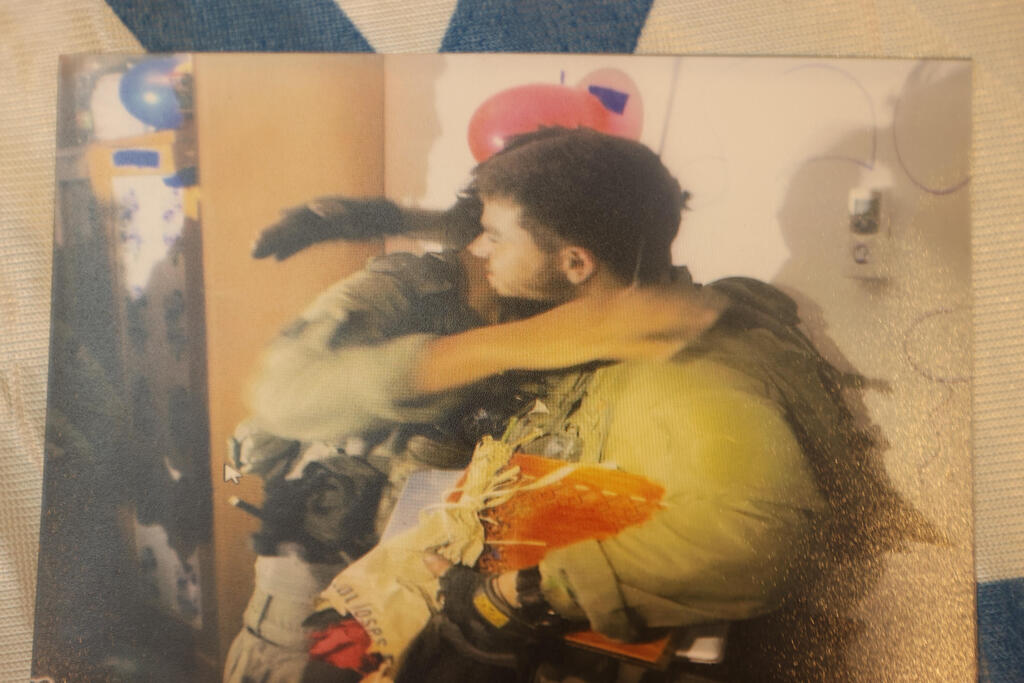Getting your Trinity Audio player ready...
There is a memorial corner set up in the home of the Bonzel family in Shoham, which displays First Sgt. Amit Bonzel's numerous awards and recognitions. Amit, 22, who was killed in combat in Gaza just over a week ago, is also remembered with personal items like childhood pictures and Maccabi Tel Aviv basketball team shirts. But it's the collection of photos taken during the final week of his life, found on a camera in Gaza City's Rimal neighborhood, that holds special significance.
Read more:
Nadav, Amit's older brother, reflects on these images. "We received these photos before he fell," he says. "At the time, we had no idea they would be the last images of him." Among them are photos from Amit's 22nd birthday, which was marked with balloons, taken shortly before his death.
One poignant photo captures a moment between Amit and Ariel Malka, his unit's team commander. After the photo was taken, Malka had to step away to oversee his own brother's funeral, leading Amit to step up as the new team commander. Now Amit and Malka's brother rest together at Mount Herzl.
Nadav recounts Amit's aspirations: "Anyone who knew Amit knew he was dedicated to the military from a young age, aiming for a career as a combat soldier."
Speaking about Amit is difficult for Nadav. "I'm in denial. In my mind, he's still in Gaza, unreachable by phone, but I'm aware the reality will eventually sink in," he admits.
The brothers last saw each other on a Friday afternoon, each then spending time with friends. The following day, both were urgently called to their respective military duties. "We missed each other at home. He was at Kibbutz Erez and I was at Kfar Aza. We managed to text and talk before he entered Gaza," Nadav says.
Though they didn't speak after entering the conflict zone, Nadav felt a wordless bond with his brother. On the day of Amit's death, Nadav, having already lost friends in battle, attempted to write a goodbye letter to his family. He started with the words, "Hi Mom and Dad and Adi," but as he went to write Amit's name, his pen ran out of ink. "I felt Amit's presence in the army vest I was wearing, which turned out to be his," he recalls. Hours later, Nadav received the devastating news from his commander and started the journey back to his grieving family.
Since his brother's death, Nadav has been busy mourning and taking care of his family. The question of whether to return to his comrades on the battlefield has arisen, and according to him, even the prime minister told him in a brief conversation to wait.
"I really want to return, but I still don't know when. I saw how much work there is left to do and I can't focus on anything else when my friends are there. I want to return not out of revenge, but because there's work to be done," he says.
Until he returns to the battlefield, Nadav is busy arranging the memorial corner for his brother while learning how life will look without him, a situation he still finds hard to imagine. "Amit used to come back on leave often, and then we would go to Maccabi basketball or soccer games, and now it will be hard for me to go without him," he says.
"Everyday life will be very difficult, I'm used to him being in the army, but Saturdays will be hard, he will be missed. He was a peace seeker, we used to call him 'Amit Aaron, the peace seeker,' (after Moses' brother in the bible) because he always tried to reconcile. Now I've taken this mission of reconciliation upon myself and, for me, if until now I was an idol for him, the roles have reversed and I admire him and miss him."





